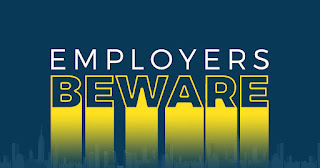A bill (S1579A) awaiting Gov. Hochul's signature will amend section 1307 of New York Real Property Actions and Proceedings Law ("RPAPL") & require plaintiffs, lenders, assignees, or mortgage loan servicers in a residential mortgage foreclosure action to maintain vacated foreclosed property at the commencement of a foreclosure action.
Currently, section 1307 of the RPAPL imposes a similar duty on plaintiffs to maintain vacated foreclosed property after obtaining a judgment of foreclosure and sale through the time ownership of the vacated foreclosed property has been transferred to another party.
It is not uncommon for residents who fall behind on their mortgage to leave or abandon their homes. As a result, lenders will commence a foreclosure action, but may delay in taking control of the vacated or abandoned property, resulting in unmaintained and deteriorating property.
As we all know, the foreclosure process in New York State can be quite lengthy and, in many instances, it can take years for a plaintiff or lender to obtain a judgment of foreclosure and sale.
Requiring plaintiffs or lenders to maintain abandoned or vacated foreclosed property at the start of a foreclosure proceeding ensures that the foreclosed property will not deteriorate due to lack of maintenance and upkeep and will ensure that the future owner of the foreclosed property will have a home that is in adequate, or even pristine condition, at the time of closing.
On the other hand, plaintiffs and lenders will likely argue that this amendment places an undue burden on them since they now have to maintain a vacated property at the start of a foreclosure action, rather than towards the tail end of it.
This could cause lenders to either:
- Move quickly in a foreclosure action rather than take their time, or
- Delay or limit foreclosure actions altogether in order to avoid the burden of maintaining a vacant or abandoned residential home at the start of a foreclosure proceeding.
Regardless, aren't there going to be disputes as to whether a property was abandoned and whether the lender was trespassing? Would you want a lender going into your home, even if they were maintaining it, as obligated?
Lenders would be wise to seek court orders confirming that property is abandoned and they can enter prior to acting under this bill, if it becomes law. Otherwise, they should expect to be counterclaimed for trespassing as they don't have any legal right to the property until the foreclosure proceeding is concluded.
Stay tuned to see if Gov. Hochul signs this bill into legislation...




